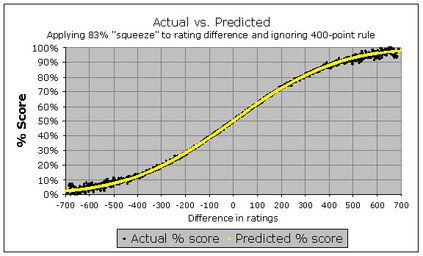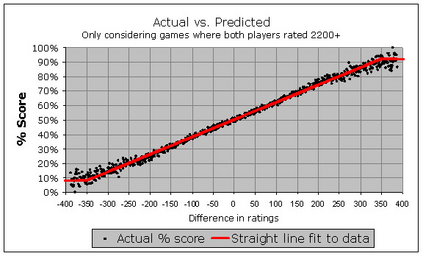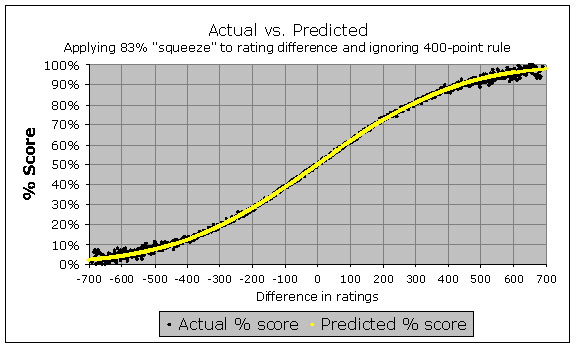In competitive games, it is common to assign each player a real number rating signifying their skill level. A rating system is a procedure by which player ratings are adjusted upwards each time they win, or downwards each time they lose. Many matchmaking systems give players some control over their opponent's rating; for example, a player might be able to selectively initiate matches against opponents whose ratings are publicly visible, or abort a match without penalty before it begins but after glimpsing their opponent's rating. It is natural to ask whether one can design a rating system that does not incentivize a rating-maximizing player to act strategically, seeking matches against opponents of one rating over another. We show the following: - The full version of this "opponent indifference" property is unfortunately too strong to be feasible. Although it is satisfied by some rating systems, these systems lack certain desirable expressiveness properties, suggesting that they are not suitable to capture most games of interest. - However, there is a natural relaxation, roughly requiring indifference between any two opponents who are ``reasonably evenly matched'' with the choosing player. We prove that this relaxed variant of opponent indifference, which we call $P$ opponent indifference, is viable. In fact, a certain strong version of $P$ opponent indifference precisely characterizes the rating system Sonas, which was originally proposed for its empirical predictive accuracy on the outcomes of high-level chess matches.
翻译:在竞争性游戏中,通常会给每个玩家指定一个真正数字的评分,以表明他们的技能水平。评级制度是一种程序,即玩家的评分在每次获胜时向上调整,或每输一次向下调整。许多配对系统让玩家对其对手的评分有一定的控制权;例如,在竞争游戏中,玩家可能能够有选择地针对那些其评分公开可见的对手发起比赛,或者在开始之前,但在对对手的评分进行放大后,不处以罚款而中止比赛。但自然地会问,一个人能否设计一个评分制度,不鼓励一个评级最大化的玩家战略性地采取行动,在对一个评分的对手比另一个评分的对手进行比对。我们展示了以下内容:这个“偏好无动”的属性的完整版本太强了,但不幸的是,虽然有些评分系统满意,但这些系统缺乏某些合适的表情性能性能,表明它们不适合捕捉到大多数玩家的评分。然而,自然地要求任何两个与选择玩家持平的玩家之间的对手都冷漠不理。我们证明这种宽松的变式的无动式的对等的评分,我们最初的对等的评分的评分是高的。






